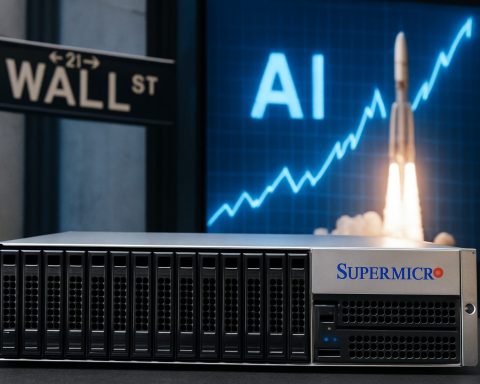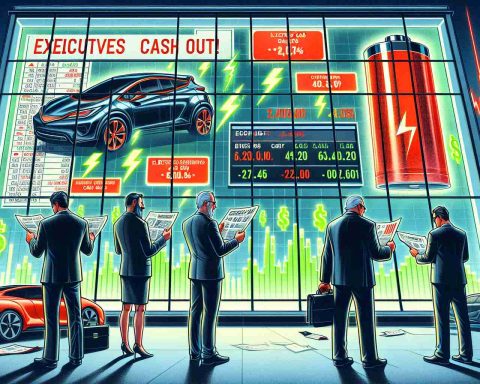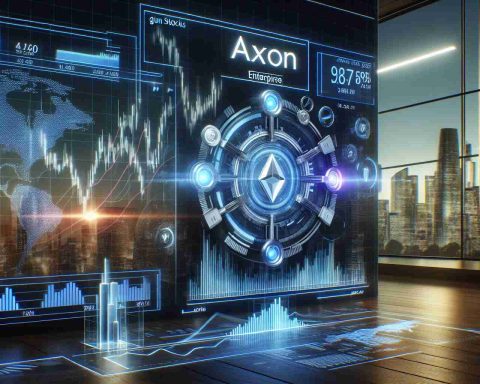- Illinois is investing $14 million in electric vehicle rebates to stimulate the market.
- The Trump administration is moving towards a free-market approach regarding fuel standards.
- This shift could lead to a diverse range of vehicle choices for consumers.
- Challenges include concerns about grid reliability and the speed of transitioning to electric vehicles.
- Innovations in battery technology and autonomous driving are expected to reshape the automotive industry.
- State rebates aim to increase accessibility and adoption of electric vehicles among consumers.
- The future is uncertain, but there is potential for a mix of gas and electric vehicles on the roads.
Illinois is cranking up the electric vehicle (EV) game with a bold $14 million investment in rebates, setting the stage for a dynamic showdown in the automotive arena. As the Trump administration gears up to revisit fuel standards, the focus is shifting from stringent regulations to a free-market approach that could spark a surge in consumer-driven vehicle choices.
Picture this: the highways bustling with sleek electric vehicles side by side with powerful gas models. That’s the thrilling future on the horizon, thanks to a proposed deregulation that promises to unleash innovative options for drivers. However, this potential revival isn’t without its challenges. Critics have raised urgent concerns about grid reliability and the feasibility of a rapid transition to an electrified fleet.
Imagine a world where automotive advancements are guided by what drivers truly desire instead of heavy regulations. With battery technologies advancing and autonomous features becoming standard, the landscape is evolving rapidly. This is a prime moment for Illinois—a state bolstering its EV initiative even as federal policies undergo significant transformations.
So, what does this mean for the average driver? With state rebates making EVs more accessible, Illinois is not just keeping up but leading in the electric revolution. While the political winds shift, one thing is clear: as consumers gain more power in choosing their vehicles, exciting innovations are just around the bend.
As Illinois navigates this thrilling terrain, the question remains: Will the future of driving be electric, or will it be a blend of gas and electric? Stay tuned—big changes are coming.
Illinois Leads the Charge: Exploring the Future of Electric Vehicles
Illinois and the Electric Vehicle Boom
Illinois is significantly ramping up its electric vehicle (EV) initiatives with an impressive $14 million investment in rebates. This strategic move positions the state at the forefront of the EV revolution, promising to enhance consumer choice in a rapidly evolving automotive landscape. This investment aims to bolster the state’s EV market amid shifting federal fuel regulations under the Trump administration, which appears to favor a free-market approach rather than stringent regulatory constraints.
Key Trends in Electric Vehicles
1. Market Forecast & Growth: The EV market is projected to grow substantially, with estimates suggesting that EVs could account for over 30% of new car sales by 2030. This growth is driven by increasing consumer awareness and advancements in battery technology, making EVs more attractive and accessible.
2. Incentives and Rebates: Illinois’s $14 million rebate program is part of a broader trend where states are introducing financial incentives to encourage EV purchases. Such rebates can significantly reduce the upfront costs of EVs, making them competitive with traditional gasoline vehicles.
3. Technological Innovations: The future of EVs is also being shaped by innovations such as faster charging technologies, improved battery life, and enhanced autonomous driving features. These advancements are critical in addressing concerns about grid reliability and the practicality of transitioning to an electrified fleet.
Pros and Cons of Electric Vehicles
Pros:
– Lower operating costs due to reduced fuel prices and maintenance.
– Environmental benefits from reduced emissions compared to gas vehicles.
– Government incentives making purchases more affordable.
Cons:
– Initial purchase price can still be higher than traditional vehicles, despite rebates.
– Charging infrastructure still developing, which may affect range anxiety.
– Dependence on the electrical grid, raising concerns around grid capacity and reliability.
Frequently Asked Questions
1. What are the benefits of owning an electric vehicle in Illinois?
Owning an electric vehicle in Illinois provides numerous benefits, including access to state rebates that reduce purchase costs, lower fuel and maintenance expenses, and various incentives such as carpool lane access and tax credits.
2. How is the Illinois government supporting the transition to electric vehicles?
The Illinois government is supporting the transition through a $14 million investment in EV rebates, along with plans to improve charging infrastructure and increase public awareness regarding the benefits of EVs.
3. What are the challenges facing the widespread adoption of electric vehicles?
Challenges include the need for an extensive charging network, potential impacts on the electrical grid, and the perception that EVs are still more expensive upfront than traditional vehicles. These factors must be addressed to accelerate the transition to electric mobility.
Conclusion
As Illinois carves its path in the electric vehicle landscape, this investment marks a significant step towards sustainability and innovation. The blend of consumer choice and technological advancement suggests a dynamic future for driving, shaping an exciting era in transportation.
For more insights on electric vehicles and sustainability efforts, visit Environmental Protection Agency for resources and information.












